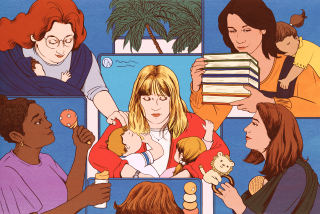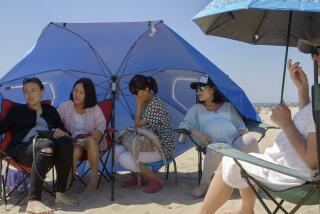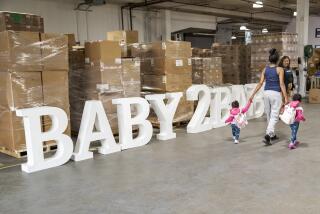Birthparents Organization Now Has 40 Local Branches
- Share via
Concerned United Birthparents, a nationwide search and support group based in Dover, N.H., was formed in 1976 and now has 40 local branches. The organization primarily serves the needs of birth parents, but adoptees and adoptive parents are also represented, said Delayn Curtis of Riverside, CUB’s regional coordinator for California, Washington, Alaska, Oregon and Hawaii and a member of the national board of directors.
CUB’s 1,500 members share a common purpose--they are seeking information about their backgrounds or those of loved ones and an understanding of the emotional turmoil they are experiencing, Curtis said, adding that more than 35,000 people were served by the organization in its first five years.
Even after making the decision to search for children they have given up for adoption, birth parents encounter a seemingly insurmountable problem, she said, because in most cases, adoption records are sealed by law.
If birth parents can overcome that barrier, they are usually successful in tracking down their children, said Curtis, who also serves as local branch coordinator of the CUB’s Orange County-Inland Empire branch which encompasses Orange, Riverside and San Bernardino counties, Long Beach and Pomona.
Unresolved Grief
Women who give up their babies for adoption often experience long-term, unresolved grief that affects their later marriages, according to several recent studies, including one published last year by the American Journal of Orthopsychiatry. The study, entitled “The Post-adoption Experience of Surrendering Parents,” looked at 334 birth parents (321 mothers and 13 fathers).
Of those who married after surrendering their children for adoption, the study found, more than 70% said the adoption had created stresses in their marriages. Unhappy marriages were especially prevalent among the nearly 20% of the birth parents who had married the other parent of the child they had placed for adoption.
The birth parents most likely to search for their children were those who were forced to give them up due to external pressures--family, social workers or lack of money, according to the study.
The chief reason birth parents decide to search for their children, according to the study, is not to retrieve them but to “attempt to resolve a significant loss. Unlike other permanent losses, for which society has constructed supportive rituals, there is no recognizable support following the loss of the child to adoption. Losses inadequately grieved may produce feelings of unworthiness, diminished self-esteem and depression. Search activity may thus be a means of achieving restitution not of the surrendered child, but of the self.”
Seeing How They Turned Out
CUB adviser and Irvine therapist May Boyden said: “Most birth parents are not seeking a reunion with their children in order to become their parents. And their children are not looking for another set of parents.
“Instead, most birth parents are looking for their children just to see how they turned out, and most adoptive children wanting a reunion are looking for their roots. Whether or not they have an ongoing relationship following the reunion is very much an individual thing.”
Additional information about CUB is available by calling (818) 509-9096 or (714) 685-2359 or by writing Concerned United Birthparents, 4784 Horseshoe Lane, Riverside, Calif. 92509.
More to Read
Sign up for Essential California
The most important California stories and recommendations in your inbox every morning.
You may occasionally receive promotional content from the Los Angeles Times.













